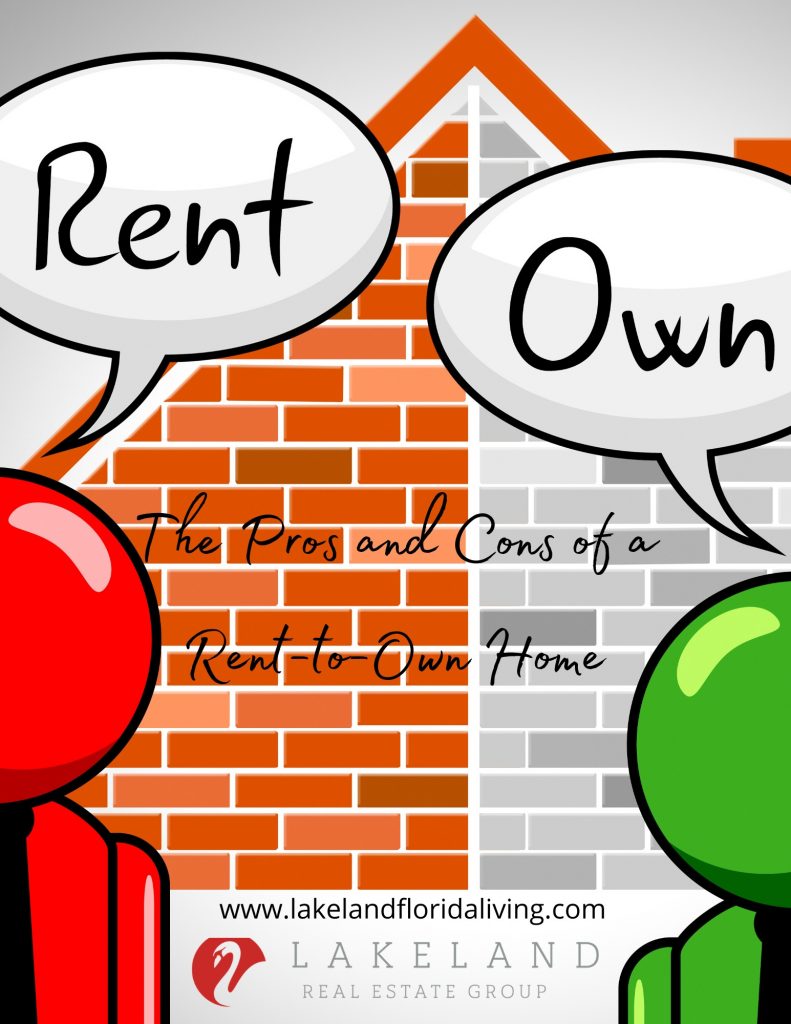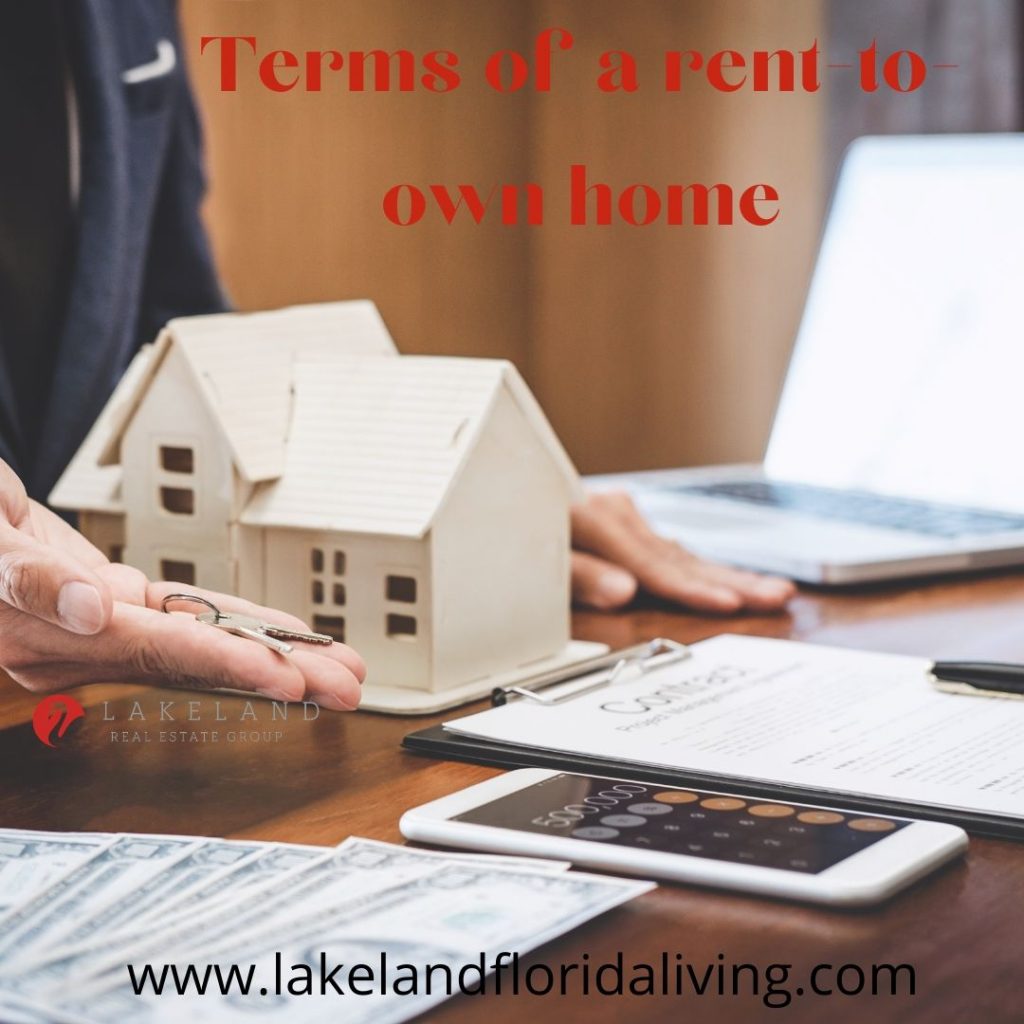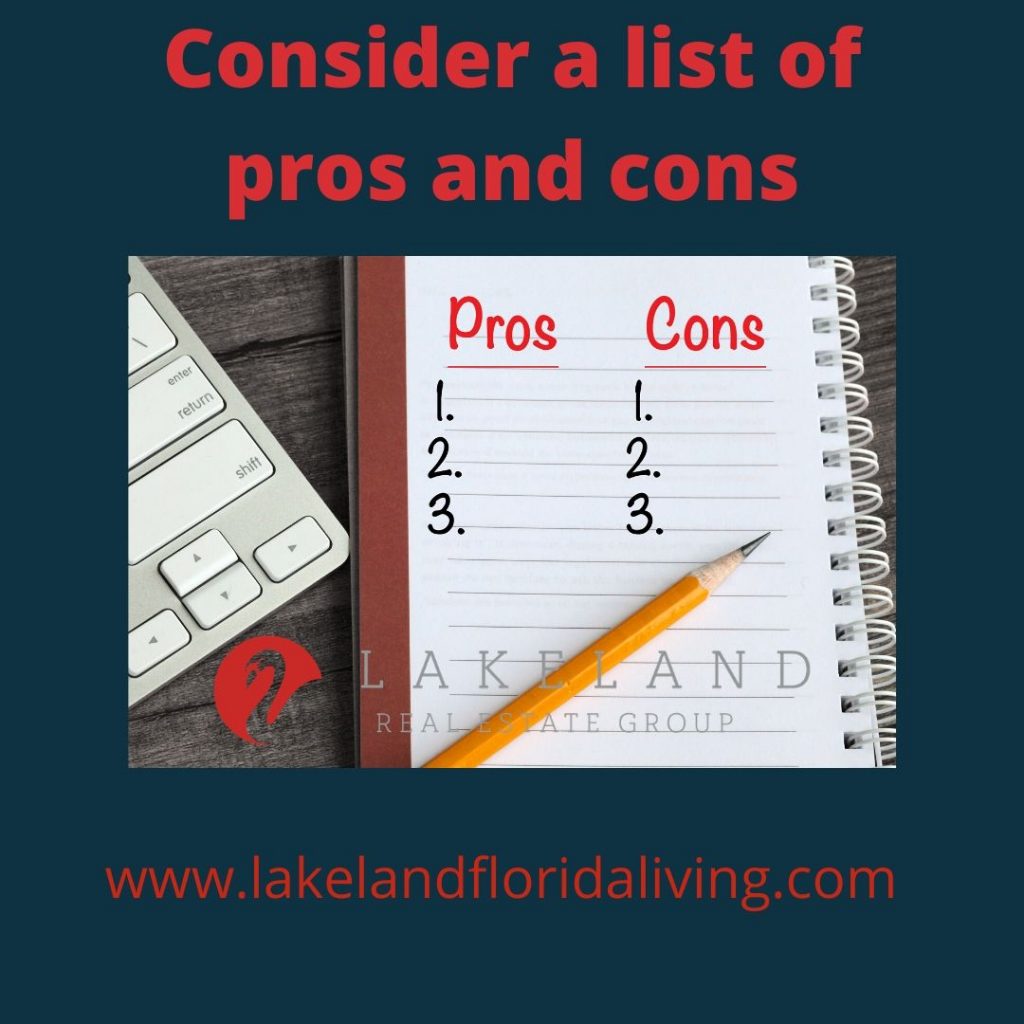Are you wanting to buy a home but are not quite ready to commit? Or perhaps you want to buy a home, but don’t have enough money for the down payment just yet.
In these instances, opting for turnkey rental property or a rent-to-own home seems like the most obvious solutions—you get your home now, but can hold off on the commitment and the huge down payment. It’s a win-win!

But wait…not so fast.
Jumping into a rent-to-own home without knowing all the facts is a recipe for disaster!
Why?
Because what you don’t know about a rent-to-own home could cost you everything including the ability to get a home in the future.
So let’s go over what a rent-to-home is, how it works, the pros and cons of a rent-to-own home, and everything in-between. This will provide you with all the information you need to make an educated decision about whether buying a rent-to-own home is the right option for you.
What Is a Rent-to-Own Home?
A rent-to-own home uses what is called a lease option agreement or a rent-to-own with the option to buy agreement. Either of these agreements allows a renter to buy the house they have been renting after a specified amount of time. However, because there are two types of rent-to-own agreements, you need to understand how each type of contract works; otherwise, it could lead to disaster.
The Two Different Types of Rent-to-Own Options
There are two types of rent-to-own home options. The first one is a rent-to-own with the option to buy that gives you, the renter, the option of buying the home you are renting after the lease is up. This option doesn’t have any strings attached. Once your lease is up, you can then begin the process of buying the home, move, or continue renting if your landlord gives you that option.
The second option is a lease-purchase agreement that requires you, the renter, to buy the home once your lease is up. A lease-purchase agreement, sometimes called a lease option agreement, is a rent-to-own contract between a landlord and a renter that usually states that a portion of the monthly rent will be credited towards the future purchase of that home, which is typically when the lease ends.
But here is where it gets tricky…
With a lease-purchase contract, if you don’t ultimately buy that home, you forfeit all your deposits and any rent money you paid that was to go towards the purchase of that home or whatever agreement you and your landlord decided upon at the beginning of your lease.
What Are the Terms of a Rent-to-Own Home?
The terms of most rent-to-own homes are usually similar, if not the same. However, all rent-to-own contracts should include the following information.
- Option Fee
This is a nonrefundable fee that is paid up-front. The purpose of this fee is to lock in the price of the home and it gives the tenant the first option of buying that home. A typical option fee is usually between 2% and 7% of the agreed-upon purchase price of the home.

- Term Limit
The term limit or time limit is included in the contract and it states the exact amount of time the tenant has to pursue their option of buying that home.
- Purchase Price
All rent-to-own contracts should include a fixed purchase price for that home should the renter decide to finalize the purchase upon the completion of their contract. Usually, the purchase price for a rent-to-own home is higher than the home’s current market value. This is because the seller has to wait to sell that home versus being able to sell it at will on their timeline rather than yours.
- Maintenance Clause
A maintenance clause specifies whose responsibility it is to complete any given repair. For example, a seller might state that the buyer is responsible for paying for and performing all repairs under $600, and the seller will perform and pay for all repairs over $600, or whatever amount you both initially agree upon. However, in some municipalities, the local laws will govern who is required to do what. Therefore, if you opt for a rent-to-own home, you might want to familiarize yourself with the laws in your area.
- Renewal Clause
All rent-to-own contracts should specify whether or not you, the renter, has the option to renew or extend your rental contract should you desire to do so. It should also include dates for how long of an extension or renewal will be allowed.
- Rent Credit
The rent credit is the portion of the rent you pay each month that is credited to the final purchase price of your home. However, in order to pay for this option, the monthly rent on a rent-to-own home is usually higher than the average market rent for the area. And, as we mentioned above, the rent credit portion of your rent is usually non-refundable if you end up not buying the home.
Is a Rent-to-Own Home a Good Idea?
This question is one that only you can answer. So go ahead and weigh the pros and cons of a rent-to-own home, which we will talk about in a moment. But in the meantime, here are some examples of when a rent-to-own home might be the right decision.
Generally, the rent-to-own option is not in a renter’s best interest. This is because life and life events can change in the blink of an eye. There are employment changes, health and family issues, and more that can easily arise and change the course of your life forever. And if you have committed to a rent-to-own home and have paid the upfront fee and the higher rents then suddenly you find yourself in a position that you can’t buy your rental—then what? You lose everything, which could jeopardize your chances of buying a home anytime in the near future as well.
However, there are times when a rent-to-own home makes sense. For example, if you are considering a rent-to-own home purchase that is part of a government-run community revitalization program, then it might be something to consider. These are great for revitalization because they take foreclosures and bank-owned homes and convert them into affordable rent-to-own houses to help low-income families. The only concern here is being able to qualify for the rent-to-own agreement with the government.
Another example of when it might be a good idea to opt for a rent-to-own home is if you sign a rent-to-own with the option to buy a contract. This is different from a lease-purchase agreement that legally commits you to buy your rental home when your lease is up.
Lastly, opting for a rent-to-own home could be a good alternative for you if you need some time to clean up your credit, raise your credit score, and save money for a down payment, or if you have any other issues that only time can take care of. However, a word of caution, make sure you know for certain that by the end of your lease you will have the money you need for a down payment and that you will be able to qualify in every other way for a mortgage on that home; otherwise, all will be lost.
Is There a Catch to a Rent-to-Own Home?
There really aren’t any “hidden” catches when it comes to opting for a rent-to-own home…if you’ve done your homework. That means the only real catch per se is if you sign a rent-to-own contract without understanding what it entails. Did you sign a rent-to-own with an option to buy? Or did you sign a lease-purchase agreement? If you don’t know the answer to that question and the differences each type of rent-to-own contract involves—then, yes, you could be in trouble.
IMPORTANT NOTE:
If you sign a lease-purchase contract, you are legally obligated to buy your rental home at the end of your lease regardless of whether you can afford it or not.
But since you are being proactive by reading this article and educating yourself on how the different rent-to-own options work, you probably don’t have anything to worry about.
The question remains, though, whether or not a rent-to-own option is right for you. So let’s talk about the pros and cons of a rent-to-own home. Then you can decide for yourself what’s best for your particular situation.
The Pros and Cons of a Rent-to-Own Home
Just like anything else, there are pros and cons of a rent-to-own home as well.
So let’s get started.

Pros:
- A rent-to-own home will give you time to clean up your credit and raise your credit score.
- A rent-to-own home will give you time to raise the money you need for a down payment. And if you raise enough money to put down, this could also help you achieve a lower interest rate as well.
- A rent-to-own home option gives you the time you need to wait for a foreclosure, short sale, bankruptcy, or deed in lieu to age off your credit report.
- Signing a rent-to-own home contract will lock in the purchase price of that home.
- Opting for a rent-to-own home allows you to see if you actually like that home before committing to buying it.
- A lease-purchase agreement will give you the opportunity to create purchasing equity that you can put towards your down payment.
- A rent-to-own home will enable you to move into a home sooner rather than having to wait until you can afford it and qualify for a mortgage.
Cons:
- A lease-purchase agreement for any home is risky. If something comes up and it doesn’t work out, you lose the initial premium payment and all funds you put in that were supposed to go toward your purchase.
- You will generally have to pay a higher than market purchase price.
- You will also usually have to pay a higher than average monthly rental payment as well because part of your rental payment goes towards your purchase.
- Your plans for buying that rental could change due to getting married, losing or changing jobs, aging parents, or suffering from a health issue.
- You might have every intention of cleaning up your credit and raising your credit score, but what if that doesn’t happen? You will still be legally obligated to buy that house if you signed a lease-purchase agreement.
- Under a rent-to-own contract, you will probably be obligated to perform some of the repairs yourself.
- If you signed a lease-purchase agreement and home prices drop, you will still be obligated to complete the purchase at the initially agreed-upon price.
- In some cases, if you don’t pay your rent on time, you might lose the right to buy the property and you could lose all your extra payments as well.
- If you don’t have the lease-purchase agreement reviewed by a real estate attorney or other professional, you could fall victim to a scam and lose everything.
We have given you a lot to think about. However, unless you are in a position that you absolutely can’t buy a home (and sometimes even then), then it’s generally best to buy a home by going through the traditional home-buying process.
If you are having a hard time deciding which route to go, we can help.
IMPORTANT NOTE:
This article is provided to give you general information about rent-to-own homes. We are not attorneys; therefore, we recommend you contact a real estate attorney for all legal advice regarding a rent-to-own home contract before making any final decisions and definitely before signing anything.
What’s Next?
If you want more information about renting or buying a home, please Contact Us today. Lakeland Real Estate Group proudly serves Lakeland, FL, and the surrounding areas.
Don’t forget to request our Free Buyer’s Guide.
Other Helpful Resources For a Rent-to-Own Home
Did you ever find out that there was an error on your credit report? It’s not the best way to find out during a car loan application or a mortgage. Before you get a loan, pull your credit especially when you can get your credit report and score for free as Bill Gassett shares.
There are other great benefits of homeownership like building wealth, like stability and freedom! You’ll never have to worry about the landlord kicking you out once the lease ends as Karen Highland shares in her article about Home-Ownership.
Before you take the plunge and apply for a mortgage, consider these pros and cons of buying versus renting to determine which option may be best for you as Michele Gibson illustrates in her article.
About the author: The above real estate article “The Pros and Cons of a Rent-to-Own Home” was written by Petra Norris of Lakeland Real Estate Group, Inc. With over 20 years of combined experience of selling or buying, we would love to share our knowledge and expertise. Petra can be reached via email at petra@petranorris.com or by phone at 863-712-4207